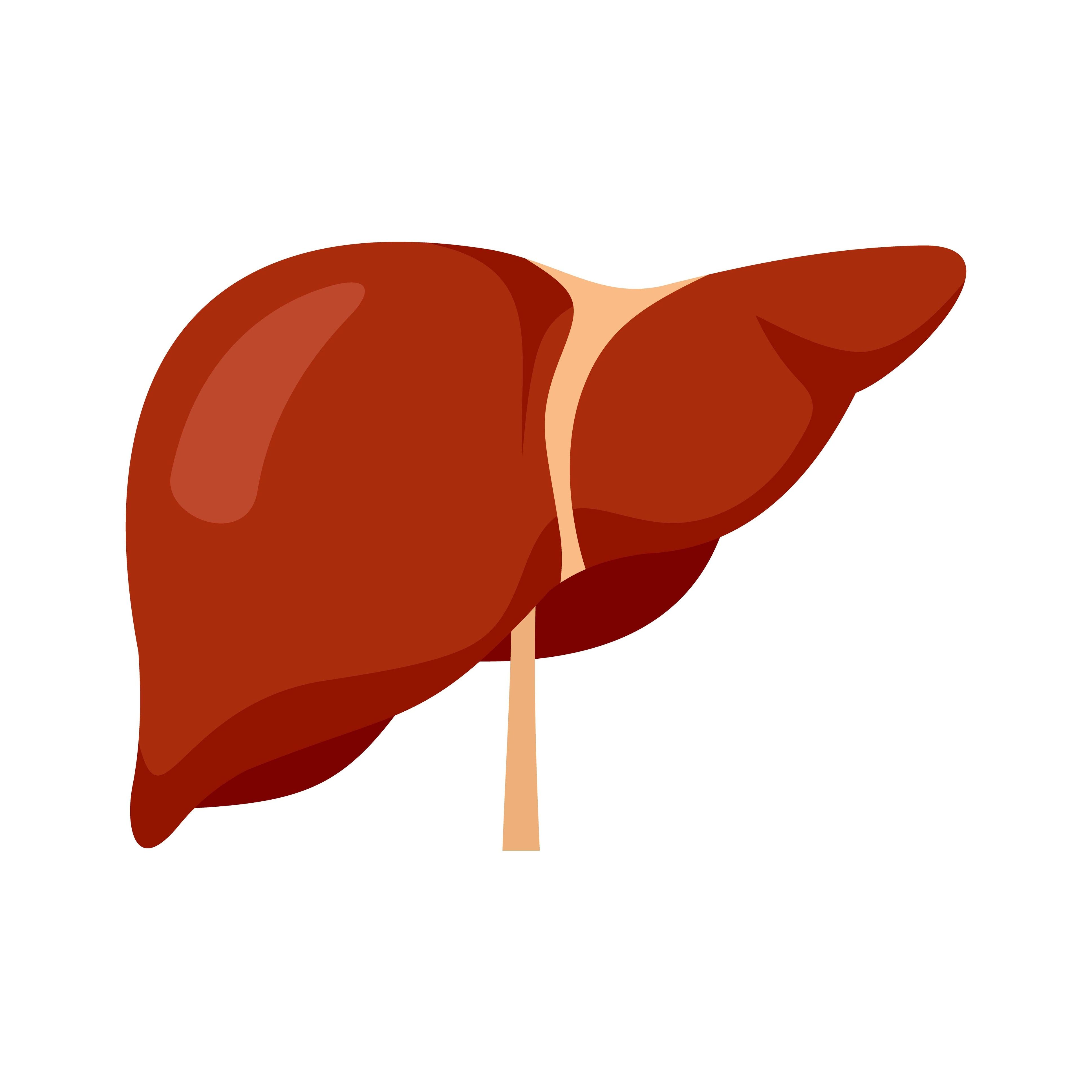Article
Adjuvant Atezolizumab Combination May Reduce Risk of Fatal Recurrence of Liver Cancer Caused by Chronic Liver Disease
Author(s):
Up to 80% of patients with hepatocellular carcinoma will experience disease recurrence.
Atezolizumab (Tecentriq; Roche) and bevacizumab (Avastin; Roche) was found to improve recurrence-free survival (RFS) in patients with hepatocellular carcinoma (HCC) at high risk of disease recurrence following liver resection or ablation with curative intent, according to late-breaking interim data from the phase 3 IMbrave050 study that will be presented at the American Association for Cancer Research Annual Meeting 2023.
Human liver icon. Flat illustration of human liver vector icon for web design: © anatolir - stock.adobe.com

“Four out of 5 people with HCC who receive surgery with curative intent may still see their cancer return. Thus, an urgent need exists for adjuvant treatments to prevent early recurrence and improve survival rates,” said Levi Garraway, MD, PhD, chief medical officer and head of global product development at Roche, in a recent press release.
Liver cancer is the number 3 cause of cancer deaths worldwide, and more than 900,000 people are diagnosed each year. HCC is type of liver cancer, and 9 of every 10 HCC cases are caused by chronic liver disease. Types of chronic liver disease include chronic hepatitis B/C infection, non-alcoholic fatty liver disease (NAFLD), non-alcoholic steatohepatitis (NASH), alcohol-related liver disease (ALD), and cirrhosis.
Patients with an early-stage diagnosis often get surgery to remove the tumor, but up to 80% of patients experience disease recurrence. Risk factors include tumor size, number of tumors, and portal vein invasion. Recurrence is associated with poor prognosis and shorter survival.
Investigators conducted the phase 3 global, multicenter, open-label, and randomized IMbrave050study to evaluate the safety and efficacy of adjuvant atezolizumab and bevacizumab for HCC patients at high risk of recurrence after surgical resection or ablation with curative intent.
Investigators randomized 668 patients to receive either 1200 mg of atezolizumab every 3 weeksplus 15 mg/kg of bevacizumab for 12 months (17 cycles) or active surveillance with no intervention.
The primary outcome was RFS as determined by independent review facility (IRF). Key secondary outcomes included overall survival (OS), RFS as determined by the review, and RFS in patients with rammed death ligand-1 (PD-L1)–positive disease.
At 17.4 months, risk of recurrence was reduced by 28% in the atezolizumab treatment armcompared to the non-intervention arm. RFS was generally consistent across both groups, and data on OS remain immature at analysis. The combination treatment’s safety profile is consistent with the known safety profile.
Atezolizumab is a monoclonal antibody that binds to PD-L1 protein, which is often expressed in tumor cells and tumor-infiltrating immune cells. The drug functions by inhibiting the PD-L1interaction with T-cell protein receptors, which can enable T-cell activation. Atezolizumab isalready approved to treat aggressive and difficult-to-treat types of cancer, but combined with bevacizumab, it’s become one of the first treatments to significantly improve OS in patients withHCC, according to current data from the IMbrave050 trial. The atezolizumab combination therapy is listed as a preferred front-line treatment in multiple international clinical guidelines.
“With [atezolizumab] plus [bevacizumab] already a standard of care in unresectable HCC, we are pleased with the potential of these results and look forward to seeing more mature data,”Garraway said in the press release.
Reference
Roche’s Tecentriq plus Avastin reduced the risk of cancer returning in people with certain types of adjuvant liver cancer in a Phase III study. Roche; April 16, 2023. Accessed on April 19, 2023. https://www.roche.com/investors/updates/inv-update-2023-04-16






